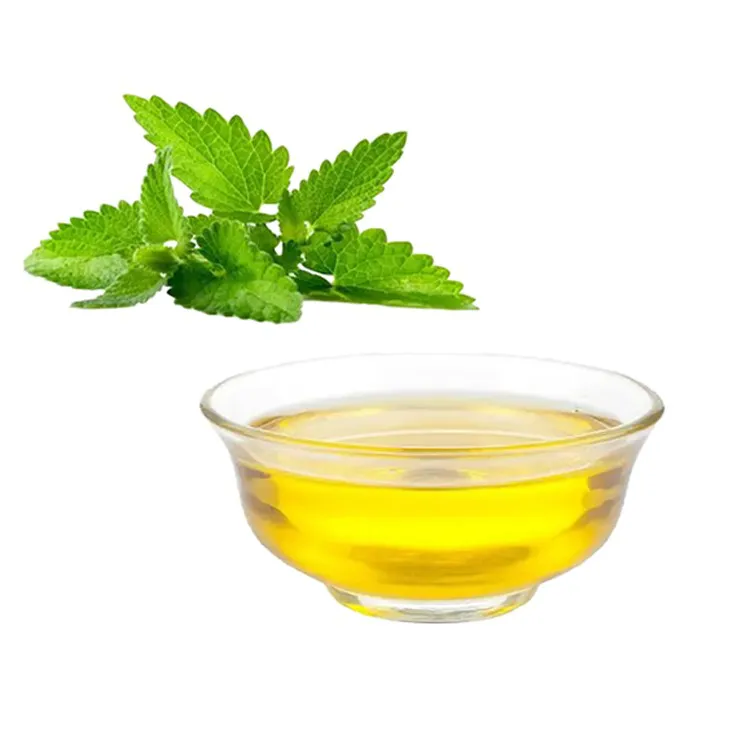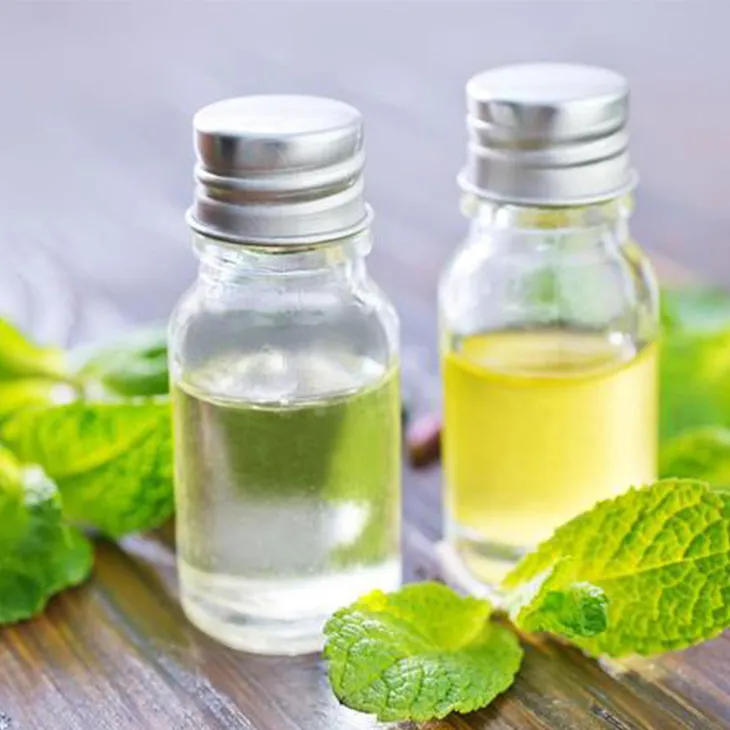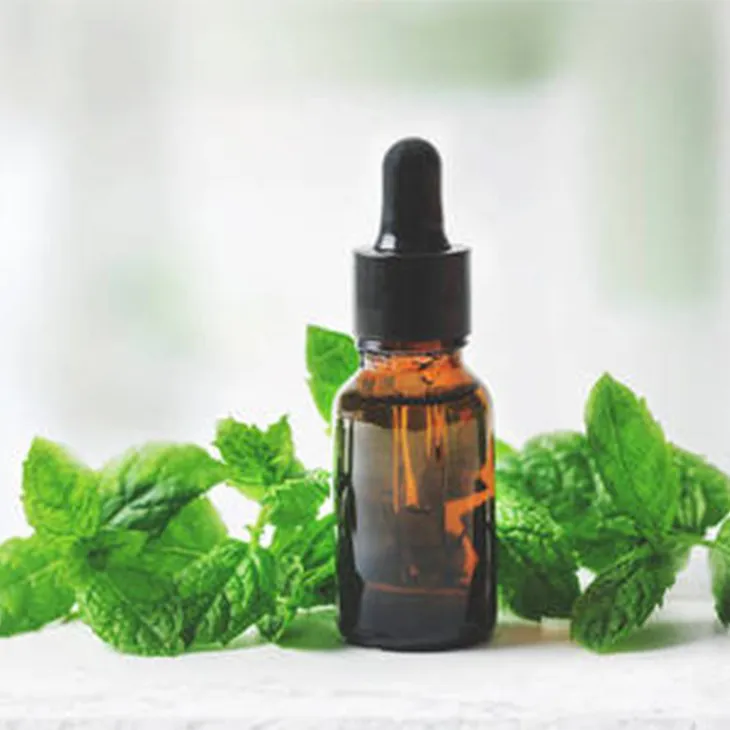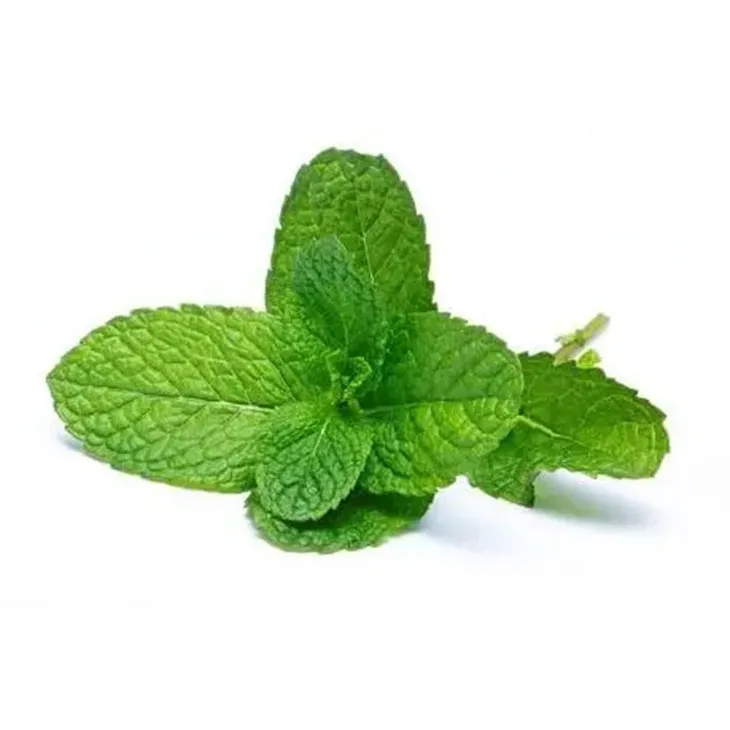- 0086-571-85302990
- sales@greenskybio.com
Use peppermint oil? Make sure you source from sustainable suppliers!
2024-12-10

1. Introduction
Peppermint Oil has a wide range of applications, from aromatherapy to medicinal uses and in the food and beverage industry. However, as the demand for Peppermint Oil grows, it is crucial to consider the source of this precious oil. Sustainable suppliers are not just an ethical choice but also a practical one for several reasons.

2. The Importance of Sustainability in Peppermint Oil Sourcing
2.1 Ecological Balance
- Peppermint plants are part of a complex ecosystem. Sustainable suppliers ensure that the cultivation of peppermint does not disrupt the natural balance. For example, they avoid over - using pesticides and fertilizers that can harm other organisms in the area.
- Peppermint is often grown in regions with diverse flora and fauna. Unsustainable farming practices can lead to soil degradation, water pollution, and a decrease in biodiversity. By choosing sustainable suppliers, we support farming methods that preserve the natural habitats of many species.
- Water usage is a significant factor. Peppermint requires a certain amount of water to grow. Sustainable suppliers use water - efficient irrigation systems, such as drip irrigation, which not only conserves water but also reduces the risk of water - related environmental problems like soil salinization.
2.2 Protecting Local Communities
- Fair Labor Practices: Sustainable peppermint oil suppliers often adhere to fair labor practices. They ensure that the workers involved in the cultivation, harvesting, and processing of peppermint are paid fairly and work in safe conditions. This is especially important in regions where peppermint is a major crop and the livelihoods of many families depend on it.
- Community Development: These suppliers may also contribute to the development of local communities. For instance, they might invest in local infrastructure, such as schools or healthcare facilities. By sourcing from sustainable suppliers, consumers are indirectly supporting the well - being of these communities.
- Cultural Preservation: In some areas, peppermint cultivation is part of the local culture. Sustainable suppliers respect and preserve these cultural traditions associated with peppermint farming, ensuring that they are passed down through generations.
2.3 Quality Assurance
- Organic Cultivation: Many sustainable suppliers practice organic peppermint cultivation. Organic peppermint is free from synthetic pesticides and fertilizers, which can leave residues in the oil. This results in a purer, higher - quality peppermint oil that is safer for various applications, especially in products that come into contact with the skin or are ingested.
- Proper Harvesting and Processing: Sustainable suppliers follow proper harvesting and processing techniques. Peppermint should be harvested at the right time to ensure maximum oil content and quality. The processing methods, such as distillation, are also carried out with precision to preserve the beneficial properties of the oil.
- Traceability: Sustainable suppliers usually offer better traceability of their products. This means that consumers can know exactly where the peppermint was grown, how it was processed, and whether it meets certain quality and ethical standards. Traceability is an important aspect of ensuring the quality and authenticity of peppermint oil.

3. How to Identify Sustainable Peppermint Oil Suppliers
3.1 Certifications
- Look for organic certifications such as USDA Organic (in the United States) or EU Organic. These certifications ensure that the peppermint has been grown according to strict organic standards, which are in line with sustainability principles.
- Fairtrade certifications are also important. Suppliers with Fairtrade certification are committed to fair labor practices and often contribute to the development of local communities where the peppermint is sourced.
- Some regions may have their own specific sustainability certifications for agricultural products. For example, certain areas in India or Africa may have local initiatives that certify sustainable peppermint farming.
3.2 Supplier Transparency
- A sustainable supplier should be transparent about their farming practices. They should be willing to share information about the use of pesticides, fertilizers, water management, and labor conditions. If a supplier is reluctant to provide such details, it may be a red flag.
- Transparency also extends to the supply chain. The supplier should be able to trace the peppermint from the farm to the final product. This includes information about transportation, storage, and any intermediate processing steps.
3.3 Reputation and Reviews
- Research the supplier's reputation in the industry. You can ask for recommendations from other businesses or individuals who use peppermint oil. Online reviews and testimonials can also provide valuable insights into the supplier's reliability and sustainability practices.
- Industry associations and trade groups may also have information about the reputation of peppermint oil suppliers. For example, associations related to aromatherapy or the natural products industry may be able to recommend sustainable suppliers.

4. The Benefits of Choosing Sustainable Peppermint Oil Suppliers for Different Stakeholders
4.1 For Consumers
- Health Benefits: As mentioned earlier, sustainable peppermint oil is likely to be of higher quality, which means it can offer better health benefits. For example, in aromatherapy, pure peppermint oil can have a more effective relaxing or invigorating effect.
- Ethical Satisfaction: Consumers can feel good about using a product that has been sourced sustainably. They are contributing to the protection of the environment and the well - being of local communities.
4.2 For Businesses
- Meeting Consumer Demands: More and more consumers are becoming conscious of sustainability. By sourcing peppermint oil from sustainable suppliers, businesses can meet the demands of these environmentally and socially - aware customers.
- Enhancing Brand Image: A business that uses sustainable ingredients like peppermint oil can enhance its brand image as an environmentally - friendly and socially - responsible entity. This can lead to increased customer loyalty and a positive reputation in the market.
- Long - Term Supply Security: Sustainable suppliers are more likely to have stable and long - term production capabilities. This ensures that businesses have a reliable source of peppermint oil, reducing the risk of supply disruptions.
4.3 For the Environment
- Reduced Environmental Impact: By supporting sustainable peppermint oil suppliers, the overall environmental impact of peppermint cultivation and production is reduced. This includes less pollution, better conservation of water and soil, and protection of biodiversity.
- Climate Change Mitigation: Sustainable farming practices often involve measures to reduce greenhouse gas emissions. For example, some suppliers may use renewable energy sources in their processing facilities or implement carbon - sequestration techniques in their peppermint fields.

5. Challenges in Sourcing from Sustainable Peppermint Oil Suppliers
5.1 Cost
- Sustainable peppermint oil may sometimes be more expensive than non - sustainable alternatives. This is because sustainable farming practices often require more investment in terms of labor, organic inputs, and environmental protection measures. However, the long - term benefits in terms of quality, brand image, and environmental protection should be considered.
- For some small businesses or consumers on a tight budget, the higher cost of sustainable peppermint oil can be a deterrent. But there are ways to overcome this, such as buying in bulk or looking for value - added products that justify the higher price.
5.2 Limited Availability
- Currently, the market for sustainable peppermint oil may not be as large as that for non - sustainable options. This means that in some cases, it may be more difficult to find a sufficient quantity of sustainable peppermint oil. However, as the demand for sustainable products grows, this situation is likely to improve.
- Some regions may have limited production of sustainable peppermint due to various factors such as lack of infrastructure for sustainable farming or limited knowledge about sustainable practices. This can also contribute to the limited availability.
6. Conclusion
In conclusion, when it comes to peppermint oil, sourcing from sustainable suppliers is of utmost importance. It has far - reaching benefits for the environment, local communities, and different stakeholders. While there are challenges such as cost and limited availability, these can be overcome with proper planning and awareness. As consumers and businesses become more conscious of sustainability, the demand for sustainable peppermint oil will likely increase, leading to a more sustainable future for the peppermint oil industry.
FAQ:
Q1: Why is it important to source peppermint oil from sustainable suppliers?
It is important to source peppermint oil from sustainable suppliers because sustainable suppliers help in maintaining ecological balance. They ensure that the cultivation and extraction processes do not harm the environment, such as by preventing soil degradation, conserving water, and protecting wildlife habitats. Also, they contribute to protecting local communities. This includes providing fair wages and good working conditions for the workers involved in the production process. Moreover, sustainable suppliers are more likely to ensure the highest quality of the peppermint oil.
Q2: How can one identify a sustainable peppermint oil supplier?
One can identify a sustainable peppermint oil supplier in several ways. Firstly, look for certifications such as organic certifications, which indicate that the cultivation follows strict environmental and social standards. Secondly, research about their farming practices. Sustainable suppliers are likely to use methods like crop rotation and natural pest control. Also, check if they have a transparent supply chain, which means they can trace the origin of the peppermint and show that it is sourced ethically. Another aspect is to see if they engage in fair trade practices, which ensure that local communities are fairly compensated.
Q3: What are the environmental benefits of sustainable peppermint oil production?
The environmental benefits of sustainable peppermint oil production are numerous. Sustainable production helps in soil conservation as it often involves practices like adding organic matter back to the soil through composting or cover cropping. It also promotes water conservation by using efficient irrigation methods. In addition, it reduces the use of harmful pesticides and fertilizers, which can contaminate soil and water sources. Moreover, sustainable production can enhance biodiversity by providing habitats for beneficial insects and wildlife.
Q4: How does sourcing from sustainable suppliers affect the quality of peppermint oil?
Sourcing from sustainable suppliers can positively affect the quality of peppermint oil. Sustainable suppliers are more likely to follow proper cultivation and harvesting practices. For example, they harvest at the right time to ensure maximum oil content and quality. They also take care of the plants during the growth period, which can lead to healthier plants and better - quality oil. Additionally, sustainable suppliers may use traditional and more natural methods of extraction, which can preserve the delicate chemical composition of the peppermint oil.
Q5: What are the social benefits of choosing sustainable peppermint oil suppliers?
The social benefits of choosing sustainable peppermint oil suppliers include supporting local communities. Sustainable suppliers often pay fair wages to farmers and workers, which helps to improve their living standards. They also may invest in local infrastructure and education. Moreover, it can help in the preservation of traditional farming knowledge and techniques as these suppliers are more likely to work with local farmers who have generations - old knowledge about peppermint cultivation.
Related literature
- Sustainable Sourcing of Essential Oils: A Comprehensive Guide"
- "The Importance of Sustainability in Peppermint Oil Production"
- "Sustainable Suppliers and the Future of Peppermint Oil Quality"
- ▶ Hesperidin
- ▶ Citrus Bioflavonoids
- ▶ Plant Extract
- ▶ lycopene
- ▶ Diosmin
- ▶ Grape seed extract
- ▶ Sea buckthorn Juice Powder
- ▶ Fruit Juice Powder
- ▶ Hops Extract
- ▶ Artichoke Extract
- ▶ Mushroom extract
- ▶ Astaxanthin
- ▶ Green Tea Extract
- ▶ Curcumin
- ▶ Horse Chestnut Extract
- ▶ Other Product
- ▶ Boswellia Serrata Extract
- ▶ Resveratrol
- ▶ Marigold Extract
- ▶ Grape Leaf Extract
- ▶ New Product
- ▶ Aminolevulinic acid
- ▶ Cranberry Extract
- ▶ Red Yeast Rice
- ▶ Red Wine Extract
-
Black Garlic Extract
2024-12-10
-
Coix Seed Extract
2024-12-10
-
Reishi mushroom extract
2024-12-10
-
American Ginseng Root Extract
2024-12-10
-
Chaste Berry Extract
2024-12-10
-
Saponin Extract
2024-12-10
-
Sophora Japonica Flower Extract
2024-12-10
-
White mustard seed extract
2024-12-10
-
Grapefruit Seed Extract Powder
2024-12-10
-
Artichoke Extract
2024-12-10





















